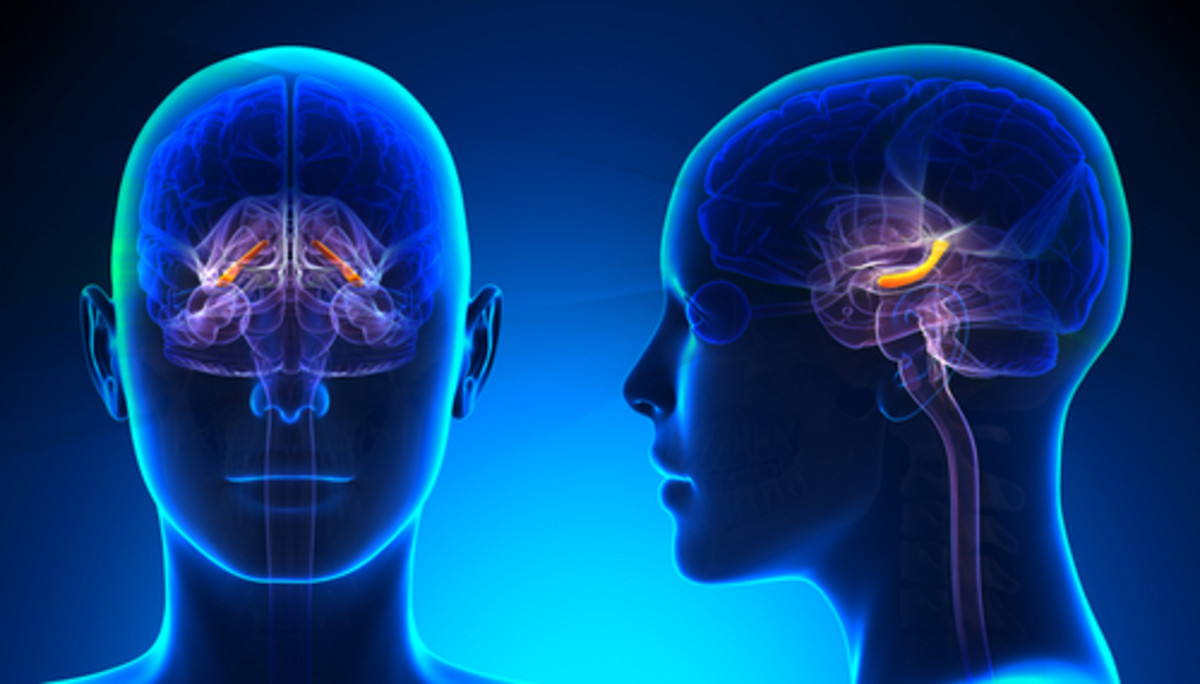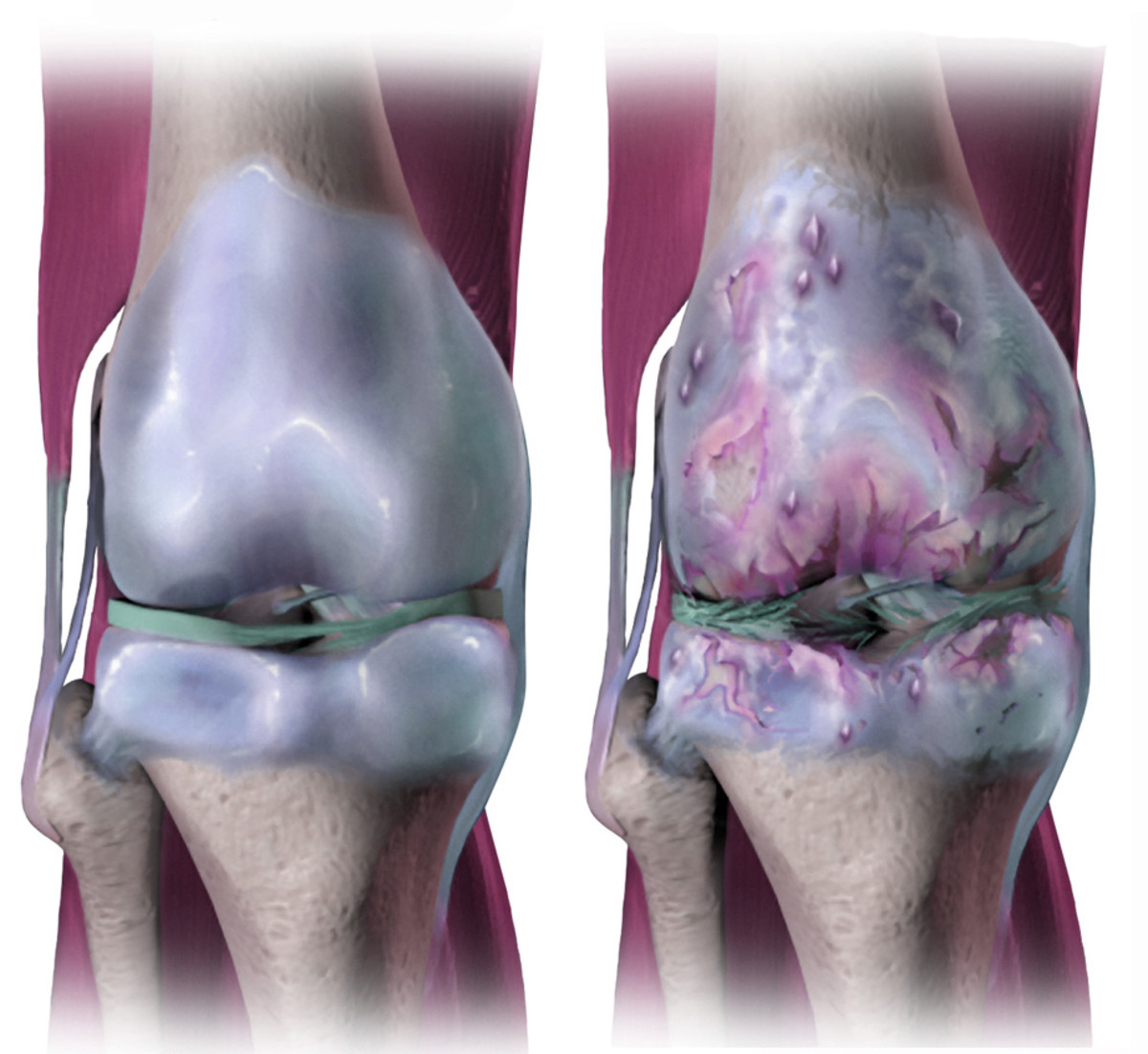Research on Popular Ingredients in Memory Pills

1. Alpha-Lipolic Acid
Alpha-Lipolic Acid (ALA) is a powerful anti-oxidant that was discovered in 1951. It is regarded as one of the major enhancers of memory and is regularly added into many memory enhancing pills. As it is an anti-oxidant, it is responsible for the eradication of harmful chemicals in the body called “free-radicals.”
Free radicals are the main culprit in the destruction of the cells of the body. It is acquired through the food we eat, the air we breathe and the liquid we drink. Everything we ingest that has chemicals or preservatives have free radicals in it. These microscopic materials effectively create havoc to the microscopic environment inside the body. This is the main reason for the deterioration of cells such as in the brain. Neurons, the cells of the brain, are easily damaged by free radicals, which is the cause of many brain dysfunctions and ultimately the development of Alzheimer’s disease, which is a chronic and severe memory dysfunction that can debilitate a person for the remainder of his or her life.
As degeneration is the main reason why brain illnesses such as Alzheimer’s occur, the restoration of it can be the answer to treat the disease. Alpha Lipolic Acid is observed to increases the production of a brain chemical called acetylcholine (ACh and brain function) which is a key component on the memory of a person. Researchers have observed the Alpha-lipolic acid is easily pass through the brain and in effect can efficiently protect the brain from deterioration. This positive reaction of the brain with this acid triggered speculation on the effectiveness of such acid in halting memory loss and can help provide a cure of Alzheimer’s disease.
Though studies are not yet conclusive, there are experiments that provide exceptional results such as In July 2012, a paper was issued in the Journal of Alzheimer’s Disease said that a research conducted by a team of VA researchers in the St. Louis VA medical Center showed considerable positive effects on memory enhancement and longevity. They have administered ALA to mice and showed such observations such as impressive memory retention and longevity. Mice administered with ALA showed considerable skill in memory; they tend to retain memory much more effective than when ALA was not administered. This study provides hope for people with Alzheimer’s disease and other dysfunction in memory caused by other sickness, trauma or cerebral accidents.
Vitamin B12 Deficiency
2. Bacopa Extract
The Bacopa extract or the extract from the “Water Hyssop” which is more familiar English name has been used in Ayurvedic medicinal formulas for centuries. It has been used alongside other herbs in various mixture formulas in providing solutions for memory loss and in enhancing retention and cognitive function. This herb is a natural memory pill which is commonly found in tropical environments. As the effects of Bacopa as a potent memory enhancer is being attested by Ayurvedic authorities, scientific studies have been conducted to prove its claims, medically and scientifically.
In 2006, a study was conducted by researchers in India on the effectiveness of Bacopa in providing solutions for memory problems. The results of the study were published in the Indian Journal of Psychiatry. The study involves patients with psychiatric disorder such as having memory loss. The subjects chosen was patients with problems such as difficult in remembering people’s names, difficulty in remembering instructions, forgetfulness and remembering phone number.
They have administered for 12 weeks a dose of 125 mg of Bacopa extract and afterwards a placebo for 4 weeks. The patients were tested regularly for any improvements and were subject to a battery of test designed to monitor cognitive function and memory strength. The tests we given in specific dates throughout the 16 week study and the scores are tallied in order to provide a conclusive data on the effectiveness of the Bacopa. It was highly expected that the Bacopa extract would only have placebo-like effects, which may be the reason for it’s “memory enhancing” claim.
However, after the study had concluded, researchers have found that the Bacopa extract statistically generated more improvement in Memory enhancing than the placebo which gives credibility on its medicinal claim. Though the placebo also generated results, it has been concluded that the results were only the effects of the trials and test conducted to these patients who in way, enhanced their brain functions. However, the Bacopa extract gave enough results to convince medical experts in continuing with the research on it.
The paper concluded that the Bacopa extract provided significant improvement on memory, a person’s use of logical analysis and increased the ability of a person to learn even in such mental dysfunction. The 12 week administration of Bacopa generated effective results in helping patients with age-associated memory impairment.
Aside from the published result in the Indian Journal of Psychiatry, an article was published in the Journal of Alternative and Complementary Medicine in 2008. The article reported the similar findings on the research of Bacopa extracts and that the results were strikingly consistent with the 2006 study in India. The 2008 study also yielded data pointing out to the effectiveness of the Bacopa Monnieri in lessening anxiety and depression of elderly patients who participated in the study.
The 2008 published study points out to the multiple positive beneficial effects of Bacopa in enhancing cognitive performance, improve memory and lessen anxiety and depression. The patients involved in the research study shows improvements and have greater results in lessening depression and anxiety than cases with Placebo.
There are many studies that have been conducted on the Bacopa extract. The journal of Alternative and Complementary medicine also published a report made by an independent researching team on the Bacopa. It states that the Bacopa extract has provided considerable positive results on the patients that were increased cognitive performance; in short, patients that we present in the experiment acquired enhanced memory and displayed low cases of depressions and anxiety onset.
Though using Bacopa extract can cause side effects, such as what patients experienced during their participation in the study on Bacopa. Many of the patients have reported to have experienced side effects such as gastrointestinal disturbance, abdominal cramps, increased stool frequency, Nausea and other non-debilitating problems of the digestive system, dry mouth and muscle weakening.
However, in an overall assessment, the Bacopa extract is very safe to use and has a very good potential for becoming one of the supplements that will be regarded by western medicine to really help enhancing memory performance, especially with the aging. The results on the independent studies conducted on Bacopa shows a tint of reality on the medicinal claims by the practitioners of the Ayurvedic medicine that it is an age-old remedy for forgetfulness and in effect enhance the memory of the person, especially when aging.
3. Co-enzyme Q10
CoQ10 or Co-enzyme Q10 is an antioxidant that is used as a natural and alternative remedy for a whole number of health conditions. CoQ10 is available in many foods we eat such as grains, liver and fish. Adequate amounts of this enzyme can be sufficiently acquired just by maintaining a well-balanced diet. Today, many doctors believe that deficiency in CoQ10 can be linked to memory loss and other dysfunctions of the brain. It has always been believed that the lack of nutrients and vital enzymes can result in memory dysfunctions.
In the medicine world, the use of antioxidants in popularity in the medical world as a treatment for Alzheimer’s disease which is one of the most dreaded condition that involves large scale memory loss. CoQ10 gives hope to those afflicted with this horrible condition as it is proving to be a promising treatment; this is the facts about Coq10.
Alzheimer’s disease is one of the most advance cases in memory loss problems people having this condition are mostly elderly individuals. This chronic memory loss affects millions of individuals which worsen in time. The causes of Alzheimer’s disease is still unknown but studies are giving light to medication that may help delay of the deterioration of the brain by halting the effects of the disease, though in our present analysis of the disease shows it to be incurable.
CoQ10 research has provided promising results in the battle against memory loss and it provides hope for people suffering Alzheimer’s. According to a published study in the Journal of Alzheimer’s disease, CoQ10 can provide means to relieve the body of the threat of free radicals which is widely considered as responsible for many chronic diseases.
The main function seen by medical researchers on the benefits of CoQ10 is its powerful antioxidant properties. As free radicals are the main culprit in many chronic diseases, Alzheimer’s disease is also suspected to be caused also by free radicals. The deterioration of brain cells is the main reason why cognitive functions are considerably reduced and most people experience such deterioration while aging. Though many studies has been conducted on the efficacy of antioxidants in halting the debilitating effects of Alzheimer’s and other illnesses that concern the brain and its functions, it only provided inconclusive results as to if antioxidants can really increase the cognitive function of the brain.
As researches on CoQ10 on its effects on memory loss were indeed promising, however limited it may be. Mayoclinic.com rated the effectiveness of the CoQ10 enzyme in treating Alzheimer’s disease as to only having a c rating. The said rating indicates that there are no other evidences that prove that it can really treat Alzheimer’s disease. Though as CoQ10 is a powerful antioxidant, is helps in slowing down the progress of Alzheimer’s and its degenerative process. According to further studies, CoQ10 as it is an antioxidant and helps prevent degeneration can also be helpful in providing relief to other degenerative diseases such as Parkinson’s disease.
Researchers conducted on CoQ10 provides promising results, however MedLine plus cautions people from taking considerable dosages of CoQ10 without proper prescription or Doctor’s advice. Using Co-enzyme Q10 to treat diseases such as Alzheimer’s must not be hastily done. One must consider factors such as other medicines used and other supplements taken already or prescribed by doctors to treat Alzheimer’s. The UMMC also advises people to fist consider consulting a doctor before attempting long term use of CoQ10.
4. Ginkgo biloba
The Gingko Biloba is probably one of the most extensively studied trees in medical history today. It is one of the oldest tree species still living today. The Gingko has been very much popular that it is currently among the best sellers in herbal medicine. The United States and Europe all have enjoyed the seeming benefits for using supplement that has Gingko as one of its main ingredients.
This tree is grows to a height of 120 feet and its leaves are the most used part. The leaves are where traditional herbalists get the extract which they claim to have memory enhancing properties which is very vital for the effective function of the brain. In traditional Chinese medicine, the use of the seed and leaves are preferred. Though Chinese herbalists do not claim the memory enhancing properties of the Ginkgo extract, they are attesting to the effectiveness in ensuring the proper circulation of the blood and to reduce the “stickiness” of the blood. They argue that is the circulation of the blood is unhindered, then sickness can’t occur and vital functions of the body are not lost. This includes the functions of the heart and brain.
The Ginkgo, especially its leaves have been a part of traditional medicine for centuries. It has been used for enhancing memory every since. Because of this immense traditional claim of the memory enhancing properties of the Ginkgo, Scientific researches and studies were made in order to confirm the claims associated with the use of the Ginkgo. Though some studies do not conclusively prove the effectiveness of the Ginkgo, the overall assessment of all studies indicates some truth on the claims.
In 2001, a study was published in the International Journal of Neuropsychopharmacology that in an experiment where 61 patients were given an irregular does of Ginkgo biloba extract and placebo for thirty days, showed that after the experimentation, when Ginkgo biloba was administered to these patients, a statistical increases in memory improvement and IQ was readily observed. This was a huge proof that the Ginkgo biloba has some yet unknown properties that can really improve one’s memory.
After the 2001 study, an independent Polish research team published the Medicine reports of the Institute of medicine of the Polish Academy of Sciences stating their finding on their controlled experiment in proving the stress relieving properties of Ginkgo to rats. The rats are placed in stress by administering stress-inducing chemicals. Those that were administered with a regular dose of Ginkgo extract recovered fully from the induced chronic stress and gained high scores in non-spatial memory tests. This was also conclusive evidence on the effectiveness of Ginkgo to regulate the functions of the brain.
The main reason why many researchers think that Ginkgo extracts can really provide leads in finding possible treatments for chronic memory loss experienced by people with Alzheimer’s disease is because of the two most important chemicals found in its leaves. These chemicals are Flavonoids and Terpenoid, which are both powerful antioxidants. These helps reduce the damage done to the brain by harmful chemicals and free radicals. They argue that because antioxidants help preserve the body from destruction; it can help the brain from experiencing deterioration due to chemicals and free radicals.
In 2002, a published study in the Journal of the Yank Medical Association contested the efficacy of the Ginkgo extract in enhancing memory and cognitive function. They recruited 230 people to undergo an experiment for 6 weeks. The participants were split into two groups one was administered with Ginkgo extract pills while the other was placebos without their knowledge. After 6 weeks of constant administration, they were given tests and the results were inconclusive.
The group that was administered with Ginkgo extract did not show exponential advantages from the group that only took placebo. However, as the Ginkgo extract contains antioxidants that help preserve neurons, it might be that Ginkgo extract only maintains the current brain functions and avoid its deterioration which is observed when people age. It might be that the effects of using Ginkgo might not be instant but can be seen through time.
In 2004, the journal Materiamedica published also the same results that showed the ineffectiveness of the Ginkgo extract to gain a considerable advantage on enhancing memory. Though it does not provide such conclusive confirmation on the effectiveness of the extract, it does not disprove the antioxidant properties found in Ginkgo.
A final study on Ginkgo extract was conducted through the famous GEM study which involves the participation of more than 3000 people all aged between their seventies and nineties. They were constantly given a steady dose of Ginkgo biloba or a placebo and regularly check on the psychological status of each participant throughout the duration of the study that lasted for more than 6 years.
The GEM study showed that though Ginkgo extract did produce somewhat improvements on memory, Placebo-effect also provides almost the same results. This study was sponsored by the National Center for Complementary and Alternative Medicine (NCCAM) and the result was published in the 2009 issue of the Journal of the Medical Association. The study definitively places a huge contest on the claims of memory enhancements and many alternative medicine experts and proponents of the Ginkgo extract will stand alongside their claims, though the GEM study did not disprove the ability of the Ginkgo extract to improve blood circulation.
Currently, amidst the overall skepticism of the memory enhancing properties of the Ginkgo extract through the researches made that almost negate its efficacy. Many are still convinced that the Ginkgo extract has some undiscovered property that really provides some kind of mental elixir which will improve brain functions. In Europe, the Ginkgo extract is widely used, especially for treating dementia and other mental illnesses which debilitates a person. The main reason why the extract was used is not because it is a cure for dementia, but it helps the body by improving blood circulation which in turn protects the cells, especially brain cells from dying. In effect, the improved memory will only be a side-effect from the use of Ginkgo.
The Ginkgo extract today are available in many alternative medicine distributors and are commonly available as additions to nutrition bars, fruit smoothies, soft drinks and fruit shakes and the Ginkgo pill which is gaining popularity in the market today.
5. Vitamin B12
Another vital ingredient in many memory enhancing pills today is Vitamin B12. The use of vitamin B12 as a supplement to prevent the promulgation of memory loss has been one of the foremost reason why this vitamin has been placed as the main ingredients in many memory enhancing pills.
In a study published in the Journal Neurology, stated that senior citizens with vitamin B12 deficiency have lower brain volumes and have memory problems compared to the same age bracket but have not deficiencies on the said vitamin.
Also a study conducted at the Rush University Medical Center, located in Chicago measured homocysteine levels and vitamin B12 levels on older people. They also measured the total brain volume of people that have both homocysteine levels and B12. The results showed that 4 out of 5 that have vitamin B12 deficiency have poor cognitive performance and poor memory. The study was supervised by Christine Tangney Ph.D. Also the study conclusively showed lower brain volumes with persons that have significant Vitamin B12 deficiencies. It has been concluded that there is an association between normal cognition and brain function with adequate levels of Vitamin B, especially B12.
An independent study also found that patients with regular intake of supplements of Folate, Vitamin B6 and B12 dramatically slowed Brain deterioration and prevented impairment of cognition. The research concluded that the loss of B12 may either reduce the brain volume directly or causes the buildups of homocysteine, which can damage the brain thus cause the loss of volume. In another study also, homocysteine is also linked with certain forms of heart diseases.








